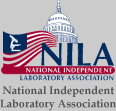Certification Standards for Public Health Laboratory Director (PHLD)
(Effective December 28, 2024)
To be eligible for certification as Public Health Laboratory Director (PHLD), an applicant must:
- Meet the qualifications as a laboratory director of a laboratory performing high complexity testing under the CLIA '88. Code of Federal Regulations, Title 42, Part 493, Subpart M, Section 493.1443(a)* and either 493.1443(b)(1), 493.1443(b)(2), OR
- Hold a Doctor of Philosophy (Ph.D.) or Doctor of Science (Sc.D.) degree from an accredited institution (see rule 11 under General Regulations) in a chemical, biological, clinical or medical laboratory science or medical technology as the major subject and have successfully completed 32 semester hours in chemistry or the biological sciences acceptable to the Board. OR
- Hold an earned Doctor of Clinical Laboratory Science (DCLS) degree or other clinical/professional doctoral degree, or a doctoral degree in a field that is not in a chemical, biological, clinical or medical laboratory science, or medical technology that is acceptable to the ABB Board and either have completed:
a. at least 16 semester hours of doctoral-level coursework in biology, chemistry, medical technology, clinical laboratory science, or medical laboratory science; OR
b. an approved thesis or research project in biology, chemistry, medical technology, clinical laboratory science or medical laboratory science, related to laboratory testing for the diagnosis, prevention, or treatment of any disease or impairment of, or assessment of the health of, human beings.
In addition, applicants for PHLD certification must:
- Have a minimum of four (4) years of clinical laboratory training or experience in a CLIA-certified high complexity laboratory (excluding experience/training in a Waived, Moderate Complexity, or Provider Performed Microscopy Laboratory) within the ten (10) years immediately prior to the application date on human testing or testing on non-human material for diagnosis and/or identification of diseases/pathogens related to human or human disease/pathogen outbreaks or both; including at least two (2) years of experience, within the ten (10) years immediately prior to the application date directing or supervising high complexity testing in a CLIA-certified laboratory. Of the four (4) years of clinical laboratory experience, at least one (1) year of experience must be in a Public Health Microbiology Laboratory or a Clinical Microbiology Laboratory doing testing on human or non-human material for diagnosis of diseases/pathogens; AND
- Have at least 20 Continuing Education (CE) credit hours in laboratory practice that cover laboratory director responsibilities defined in Section 493.1445 of the December 28, 2024, CLIA regulations; AND
- Pass an ABB examination in General Knowledge and in Public Health Microbiology.
*Individuals with an M.D. or D.O. degree, or the equivalent, must also be licensed to practice medicine in at least one (1) state in the U.S.
**NOTE: ABB General Regulations, rule 18, now is out-of-date. Under the new CLIA regulations effective December 28, 2024, laboratory training or experience must be obtained in a facility that meets the definition of a laboratory under 42 CFR 493.2 and is not excepted under Section 493.3(b) [exceptions to CLIA applicability]. In other words, the required training/experience must be in a CLIA-certified high complexity laboratory.
PLEASE READ - Instructions for completing the Application for ABB Certification










